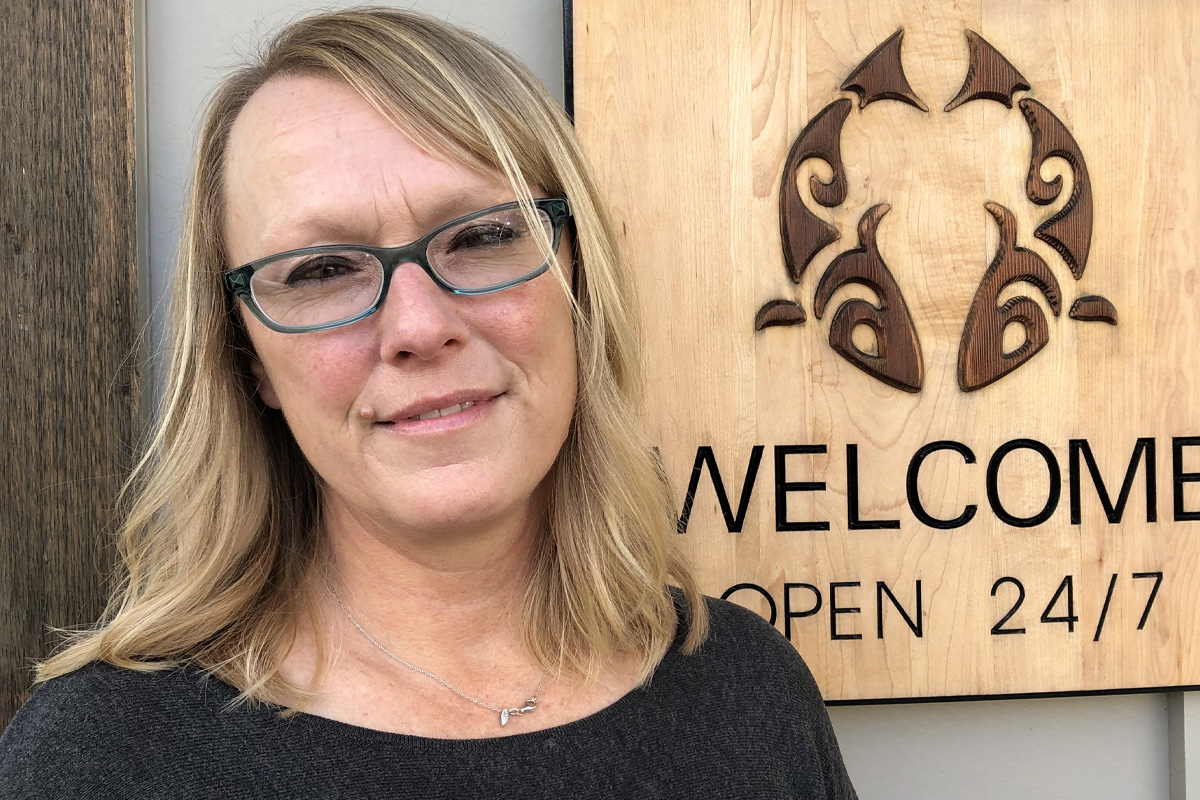When the Echo Canyon Fire in the Lincoln City area forced people to evacuate this past Labor Day Weekend, Diana Steinman was as surprised as everyone else. As the Director of Operations for the VIP Hospitality Group and overseeing four Coast hotel properties, Steinman was well versed in disaster planning for a potential tsunami, but wildfire was an emergency of completely different nature. The Echo Canyon Fire started on September 7 and, fueled by easterly winds, eventually grew to 2,500 acres and destroyed more than 1,200 buildings.
This was new territory for Steinman and her staff at Lincoln City and Newport properties, who not only dealt with evacuation, but ended up caring for other evacuees, their families and each other during the fire and its aftermath.
As the smoke cleared and Steinman took stock, she says the crisis offered unexpected lessons in leadership and gratitude and a return to the core values of the hospitality industry.
“The hospitality skills and the emotional intelligence I have built working in this industry served me well in the face of this crisis,” she says. “As I looked around I thought our hotels really are a place of refuge. I felt so blessed to be in this industry.”

Rough Road, Dark Night
When Steinman and her staff at The Coho Oceanfront Lodge received word of the evacuation order, they had already passed a difficult night. While their guests had gone home, many employees had homes in the line of the fire and were worried about their families. The power had gone out the night before, leaving the hotel operating with generators and battery-powered lanterns. Highway 18 was closed, so Steinman decided to evacuate more than a dozen of her employees and their families to the Inn at Nye Beach in Newport. Highway 101 was backed up by people fleeing the fire. It took four hours for everyone to travel the 25-mile stretch between Lincoln City and Newport.
“Luckily, we didn’t lose cell phone coverage so I did not lose contact with my staff. We made a plan to meet at the Inn at Nye beach. My staff there was prepared to receive people to shelter.”
When they all reunited at the inn, it became clear to Steinman that she had an entirely new challenge on her hands as a leader: to keep her own emotions in check.
“You have to set aside your personal feelings and decide to be a selfless individual. It was very important that I set the tone and be very calm in the face of the devastation so my team felt safe and secure.”
She met individually with each staff member and responded to their immediate concerns. She made a point to filter information coming in, much of which was inaccurate and extorted the state of the crisis, leading some to believe, incorrectly, that they had lost everything.
“I said, let’s just wait until we have the authorities to report accurate information. We can’t just believe what we read on Facebook.”
But it was tough, she says.
“It was really gut wrenching and heartbreaking to see people in their most vulnerable moments.
Everything they have is in their vehicle and they don’t know what tomorrow will bring.”
Servant Leadership
Steinman made sure everyone had food, money for gas and immediate needs met. Many employees had children, elderly parents or grandparents in their care, and she made a point to check in to make sure everyone had what they needed. In lighter moments, she and her team joked that the inn had become a Noah’s Ark as it was packed with cats, dogs, rabbits, birds and other family pets.
And as the days passed, it sunk in for Steinman that the crisis was an opportunity for what she calls servant leadership—making employees’ needs a central concern.
“I looked at this situation as another opportunity to serve employees that are in my care,” she says.
When the evacuation order was lifted, Steinman and her staff headed north, but many could not return to their homes for more than a month. While the fire was contained in a matter of days, it took weeks for power and water service to be restored in some areas.
Many employees and their families sheltered at Inn at Wecoma, which Steinman also oversees. Then she responded to a call from the American Red Cross and took in more than thirty local residents who couldn’t return to their homes. Some of her employees sheltering at the inn were able to work, which not only allowed them to make money but, she says, gave them a sense of purpose in helping others. She says it was moving to see their empathy and selflessness.
“To see them putting aside their own stress and fears to step up and take care of others, it was a beautiful thing to see,” she says.
Only one of Steinman’s employees lost everything in the fire and a GoFundMe campaign has been launched to help her.
Heart of the Industry
As Steinman reflects on the experience, she says the true spirit of the hospitality industry shone through.
“As I looked around, I thought our hotels are not just places of celebration; they really are places of refuge.”
She says the experience was a reminder of the true meaning of hospitality.
“You are meant to be of service to others. It is a selfless industry you have to be empathetic to others. You have to be able to read people and set your needs aside.”
– By Eileen Garvin